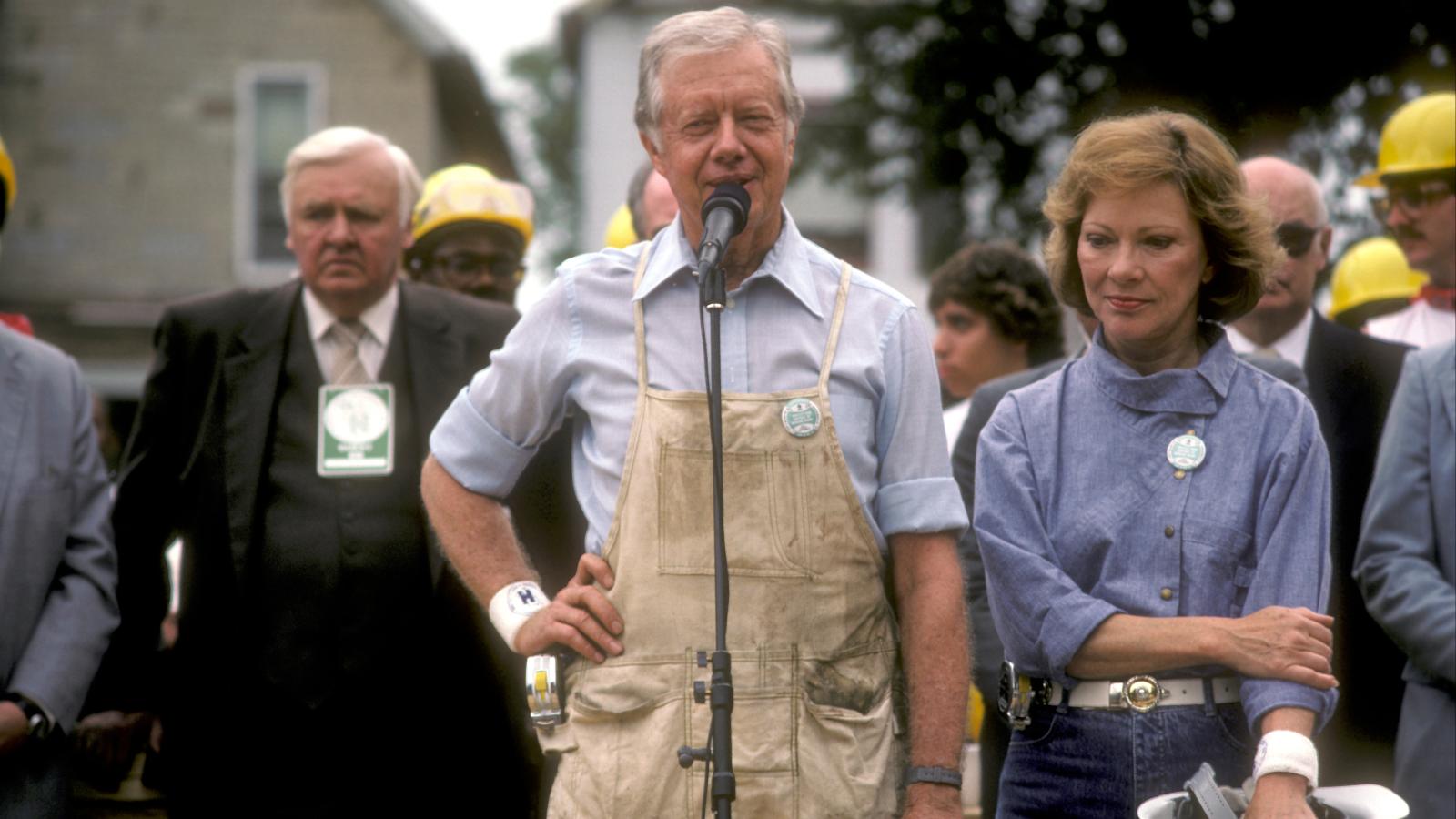Godspeed, Jimmy Carter: A Champion of Fair and Healthy Housing for All Americans
On Sunday, December 29, at the remarkable age of 100, our 39th U.S. president departed this world. What a life he led! President Carter’s unwavering commitment to fair, affordable housing extended far beyond his four years in the White House. He believed that access to healthy, affordable housing was not just a policy goal but a fundamental human right: a cornerstone of human dignity and social equity for all, regardless of race, creed or socioeconomic status.
Transforming Housing Policy as President
During his presidency (1977–1981), Carter prioritized housing as a national imperative. Recognizing the ugly systemic disparities that had long marginalized communities of color and low-income families, he actively and strategically expanded the federal government’s role in promoting fair housing practices and affordable housing initiatives.
Carter’s administration strengthened the Fair Housing Act of 1968, enhancing its enforcement mechanisms and empowering the Department of Housing and Urban Development (HUD) to combat redlining, discriminatory lending and exclusionary zoning. He increased funding for programs designed to uplift low-income Americans and revitalized urban neighborhoods suffering from decades of neglect.
A key instrument in these efforts was his promotion of Community Development Block Grants (CDBGs). These grants provided local governments with resources to tackle chronic housing issues and improve infrastructure. From neighborhood revitalization and affordable housing to youth programs and health initiatives, CDBGs under Carter’s leadership became a lifeline for local governments to assist communities previously left wanting.
A Lifelong Commitment to Housing Justice
Carter’s dedication to fair housing didn’t end with his presidency. In fact, it deepened. In 1984, he and his beloved wife Rosalynn embarked on a decades-long partnership with Habitat for Humanity International, a nonprofit that builds affordable homes for families in need, including here in Rockford.
The Carters didn’t just lend their names to the cause; they frequently showed up and worked tirelessly on Habitat construction sites. Through the Jimmy & Rosalynn Carter Work Project, they brought attention to the affordable housing crisis, inspiring thousands to volunteer and directly impacted communities. By 2023, the Carter Work Project had helped build or repair thousands of homes in over 70 countries.
Fighting Housing Inequities Rooted in Racism
Jimmy Carter didn’t shy away from confronting the racial injustices underlying housing inequality. He openly addressed how systemic racism – through practices like redlining, predatory lending, and unfair zoning – had relegated many communities of color to substandard housing and limited opportunities for homeownership.
Carter worked to break down the barriers facing people of diverse backgrounds to achieve the dream of homeownership. Carter’s voice and actions amplified the urgent need for fair lending practices, urban renewal projects and policies that prioritized the needs of people over business interests.
A Legacy of Justice and Inspiration
Jimmy Carter’s work underscored the profound connection between housing and social determinants of health, opportunity and equity. He showed the world that housing is not merely a matter of shelter, but of justice, dignity and economic stability. His bold vision remains a powerful call to action for all of us—especially here in Rockford, where affordable housing is critically needed to support those who live here now as well as to attract new residents who can help our community thrive.
On the PlatFORM Group volunteer Board of Directors, we draw inspiration from President Jimmy Carter’s inspiring legacy. Like him, we believe that addressing housing inequality is much more than an act of charity; it’s a moral responsibility and smart economic policy.
Godspeed, President Carter. Your vision lives on, inspiring us to continue our work toward a society where every person can live their lives sheltered in dignity and health.
* Photo courtesy of Habitat for Humanity

